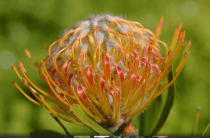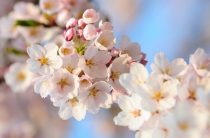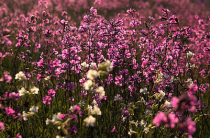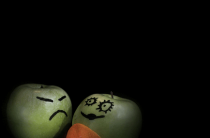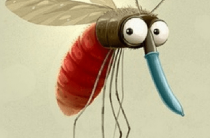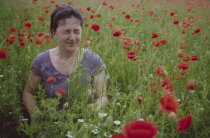A riot of colors, flowering and a sea of impressions are brought to us by such seasons as spring and summer. But many only suffer with their onset. The reason for this is pollen allergy . Its characteristic feature is seasonality. With the first flowering, people show allergic reactions. While a foreign trace element, a parasite, enters the body, the immune system tries to fight them.
As a result, the immune system is weakened.
And as a result, it begins to take dust, pollen, wool for parasites. There is an attack on their own cells. Once in the body, pollen irritates the respiratory tract and causes many allergic manifestations, which cause a lot of inconvenience. Allergy to pollen occurs from plants pollinated by wind. With the help of it, spores are dispersed and carried over long distances, settling on a person’s clothes, his hair, and skin. Because of this, it is almost impossible to protect yourself from contact with the allergen. The presence of a large amount of pollen depends a lot on weather conditions. In rainy weather it is less.
Signs of pollen allergy
The symptoms of this disease are quite peculiar, and it is difficult to confuse them. The disease begins to manifest itself immediately:
- Sneeze
- Runny nose
- Eye redness
- lacrimation
- Skin rashes
- Itching
- Decreased concentration
- Fatigue
In people with a severe course of this disease, there is an increased body temperature, shortness of breath. Often there are problems from the gastrointestinal tract - nausea, vomiting, poor appetite. In some cases, a skin rash can cause such severe itching that the patient has to use hormone-based ointments. Seasonal allergies often cause disorders of the nervous system. Leads to the following diseases: laryngeal edema, bronchial asthma, sinusitis, rhinitis.
We know that pollen allergy lasts quite a long time, as various types of plants begin their flowering in the spring.
And it continues until the beginning of autumn. This leads to the appearance in the patient of frequent headaches, migraines, in rare cases - epileptic seizures. When released into the blood, pollen particles provoke joint pain, rheumatism.
dangerous plants
Plants such as birch, alder and oak are the first to bloom. Following them, maple, willow and poplar bloom. The third in line are apple trees. Trees and shrubs bloom in spring. In summer - cereal grasses (corn, rye, wheat, oats), and in autumn - weeds (nettle, ragweed, wormwood). When an allergy is detected in a patient, cross-reactions are common. A concomitant disease may be an allergy to food, drugs and cosmetics.
If a person suffers from an allergy to flowering birch, apple or alder, then you should be wary of such products:
- Apples
- Cherries
- nuts
- Peaches
- Carrot
- Potato
- Tomato
- Kiwi
If you are allergic to the flowering of cereal plants, be careful with wheat and sorrel.
Artemisia, chamomile, dandelion, dahlia and sunflower pollen causes cross-reactions with citrus fruits, honey, chicory, sunflower oil, halva.
And ragweed pollen causes allergies to such foods:
- Beet
- Spinach
- Melon
- Banana
How to be treated and what to do
If you have identified the first signs of an allergy in yourself, contact an allergist doctor. He will recommend that you undergo a set of examinations that will help identify your type of allergy. Allergies can be diagnosed with skin tests. It is not necessary to carry out this type of diagnosis during the period of exacerbation. It is usually held during the cold season. Also, a blood test for immunoglobulins will help in the diagnosis.
Doctors resort to the most effective method of treatment - immunotherapy. The essence of such treatment is the introduction of allergens into the body. Each time the dose of injection increases. As a result, the body gets used to it and stops responding.
To avoid a reaction to birch pollen, try not to eat fruits and vegetables that are red or orange. Kvass, corn, peanuts, soybeans are prohibited for people suffering from allergies to pollen of cereal plants. Absolutely all allergy sufferers should stop drinking alcoholic beverages. It adversely affects the functioning of the immune system.
In the fight against this disease, antihistamines are very helpful.
Suprastin, Tavegil, Diazolin, Kestin belong to the first generation of antihistamines. These drugs relieve symptoms only temporarily. Their disadvantage is increased drowsiness, a feeling of fatigue. Side effects include nausea, vomiting, and headaches. Given these facts, such drugs are not recommended for people working and driving. The second generation of drugs include Claritin, Zyrtec, Terfenadine. These drugs have many fewer side effects, but they are contraindicated in people with heart disease.
The third generation is the most modern and effective among all means.
After their use, the patient's well-being improves instantly. They have no side effects. Telfax is one of them. In allergic rhinitis, it is advised to use vasoconstrictor drugs. Among them, nasal drops Nazol, Nafazolin are distinguished. They reduce swelling, reduce the amount of mucus, thereby making it easier for the patient to breathe. But it should be remembered that drops can not be used for longer than 5-7 days. If no drugs help get rid of the symptoms, you need to get vaccinated.
Vaccination is indicated both to cure allergies and to prevent their occurrence. Vaccination should be carried out by the attending physician to avoid adverse reactions to it. It is not advised to vaccinate children under 5 years of age. Pregnant women should refrain from vaccination. It has been established that after the vaccine, patients forget about allergies for 6-8 years. There have been cases of complete recovery.
But before you decide to vaccinate, you need to think about everything. It is impossible to predict how the body will react to a vaccine. Such adverse reactions may occur: runny nose, urticaria, suffocation, shortness of breath, anaphylactic shock. In the first 24 hours after vaccination, swelling may occur at the injection site.
Prevention
The most effective, but practically impossible, is the condition to exclude contact with pollen. The best option would be to change your place of residence in a different climate zone for the entire flowering period.
- To help relieve symptoms, try not to walk outside on dry and hot days.
- Use of air purifiers and air conditioners
- Try to open windows less often. And if you open them, cover them with damp gauze or a sheet.
- Wear glasses while walking
- After each trip to the street, when you come home, take a shower. Thoroughly rinse your nose, ears, eyes.
- Gargle
- It is advisable to walk only after rain and in the evening
- Wet clean regularly
- Avoid using cosmetics containing herbs
- Diet
- Do not dry washed clothes on the street or on the balcony
- Be careful in choosing home flowers. Don't keep flowers in vases
- Vacation by the sea
- When you get home, take off your street clothes
- Beware of open windows on public transport
Many recipes for getting rid of allergies are offered by traditional medicine.
- Insist on a sequence. 1 tsp of a series pour 0.5 liters of water. Infuse for 20 minutes. Take three times a day
- Infusion of calendula. Mix 1 tbsp calendula flowers with 1 cup boiling water. Get up exactly 1 hour. You need to take this infusion 1 tbsp before meals 3 times a day
- Celery juice. Take 1 teaspoon before meals
- If you are not allergic to sugar, you can put 5-10 drops of bay oil on a piece of refined sugar and eat 3 times a day before meals
- Infusion of violet tricolor. 1 tbsp violets pour 1 cup boiling water. Insist 3 hours. Take 3 times a day, 1 spoon
- After eating, drink a glass of water, dissolving 1 tsp of calcium chloride in it.
- Warm infusion of motherwort is necessary to gargle with allergies to pollen. 1 tbsp pour 1 cup boiling water. Insist 2 hours. Then dilute 1 tbsp of infusion in a glass of water and rinse
- Shilajit is effective in the treatment of allergies and does not cause any reactions in the body.
- Oat broth will help rid the body of allergic manifestations
- Take baths with lavender, eucalyptus and peppermint essential oils. Put a few drops on a handkerchief and inhale the vapors periodically
Take a deep breath so that your chest is filled with air as much as possible and “comes to life”. Next, exhale sharply without holding your breath. Try to avoid stressful situations. Control your nervous system. After all, as you know, the psychosomatic state is of great importance for the appearance of a particular disease. Follow all the advice and prescriptions of doctors, you can defeat this ailment.
